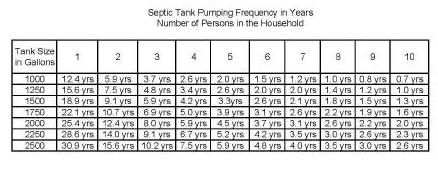Septic Pumping Services
Remove Blockages With Septic Tank Pumping
Make sure your septic tank is clean and stays in top shape for as long as possible with help from the professionals at Carl's Septic Service Inc. We specialize in providing quality septic tank pumping and cleaning services that'll keep your wastewater flowing how it's supposed to.
Septic tank pumping is necessary in the same way that changing the oil in your car is. It helps protect your investment and extends its life. Routine septic tank pumping protects your drainfield and will greatly extend the life of your septic system.
Septic tanks allow sewage from the house or building to enter the tank through the inlet pipe and baffle. The baffle deflects the water and waste, directing it down into the liquid in the tank. There, the solids and grease separate. Grease forms the scum layer on top of the water, and the sludge settles to the bottom of the tank.
In a properly maintained septic tank, there is a relatively clear liquid in the middle called effluent. When wastewater is added to the tank, the liquid level rises, and the effluent flows through the outlet baffle to the absorption field.
If you don't have your septic tank pumped out frequently enough, the effluent retention time is greatly reduced. This means that the liquid area between the scum layer and the sludge becomes too small, and the solids don't have a chance to separate into scum and sludge. As a result, solids get pushed out into the distribution lines and clog the drainfield.
When it's time to have your septic tank pumped, Carl's Septic Service Inc is here for you. We've been in the business for over 60 years, and all our technicians are fully certified with state licenses. Call us today to learn more or to start planning your septic pumping service!
Septic Tank Pumping Recommendations
Having your septic tank pumped regularly is key to extending its lifespan and ensuring it works properly. Two factors to consider when trying to determine your pumping schedule are the number of occupants in the household and the gallon capacity of your septic tank.
Following a septic tank pumping schedule is a good idea. To help you figure out the best pumping schedule for you, check out the table provided below. This schedule, obtained from the United States Environmental Protection Agency (U.S. EPA), shows the recommended septic tank pumping frequency based on the tank's size and the number of people living in the household.
Septic tank cleaning and pumping is a critical step in septic system care as it extends the life of the septic field. Even if you don't care how septic systems work, you need to know how often to pump your septic tank. In the table below, you can look up your tank size and the number of persons in the household to see how often the septic tank should be cleaned.
For example, a 1,000-gallon septic tank used by two people should be pumped every 5.9 years. If eight people are using a 1,000-gallon septic tank, it should be pumped every year.

Remember, this is a recommended schedule based on the average daily flow of wastewater leaving your home. Some households use a lot more water than others, simply by doing more laundry, taking longer showers, or cooking more meals than other households. These activities generate more wastewater and more solid waste that will need to be removed from your septic tank. If you do these activities more than average, you may need to pump your septic tank more frequently.
It is also a good idea to pump your septic tank just before a party or large gathering of people. The large flow of wastewater into the septic tank can temporarily overload the septic tank and system. This could cause a stoppage in the sewer line between the house and the septic tank.
At Carl's Septic Service Inc, we recommend you establish and maintain a septic tank pumping schedule just like scheduled oil changes on your car. Regular septic maintenance is key to a long-lasting septic system. Call us today for more information or to start planning your septic system pumping services!
Reviews
Learn More About Carl's Septic Service Inc
Serving the DuPage County, IL area, Carl's Septic Service Inc specializes in septic installation, pumping, and repair services. Over 60 years in the business. Fully certified technicians. Call us today.


Share On: